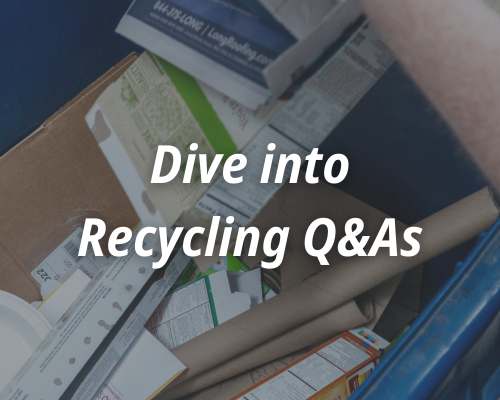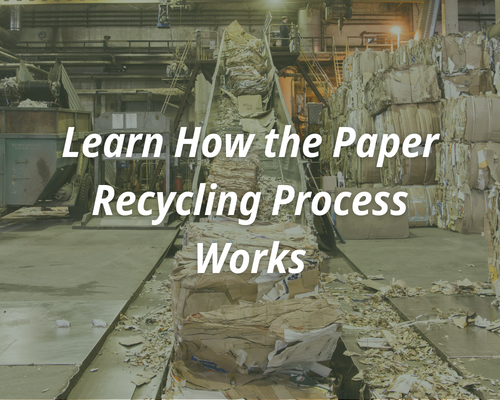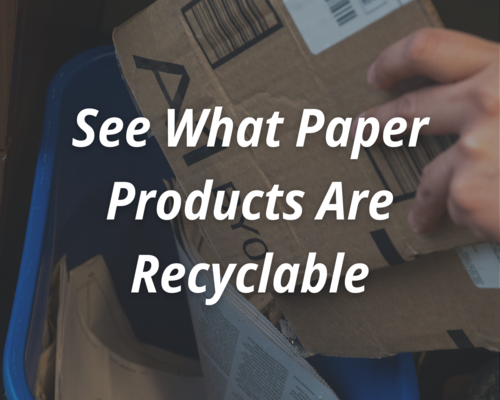Can I Recycle a Greasy Pizza Box?
It’s pizza night. You finished the last slice and see a spare pepperoni, some patches of grease and a little cheese on your pizza box. You wonder if you can recycle it.
Dive in to learn if greasy pizza boxes can be recycled.
Can I Recycle a Greasy Pizza Box?
Yes, a pizza box with grease on it can be recycled by paper mills. In fact, a study confirmed grease and cheese in an amount typically found on pizza boxes are not an issue for the recycling process. But remove leftover pizza and pepperoni before recycling!
How Do I Recycle Pizza Boxes?
Always check to make sure your area accepts pizza boxes before recycling. 82% of Americans have access to a community recycling program that accepts pizza boxes.
When recycling, remove leftover pizza and place the box in the recycling bin.
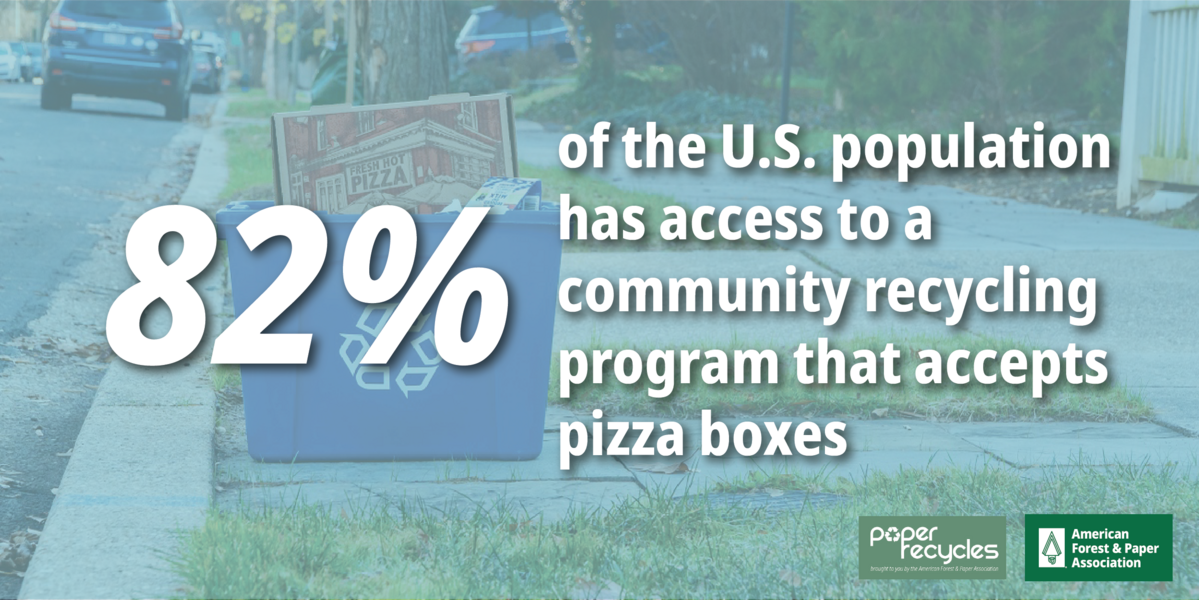
What if My Pizza Box is Saturated in Grease?
If your pizza box is completely soaked and saturated in grease, then it’s okay to toss in the trash. Check your local guidance to see if it can be accepted for composting or goes in the trash.
Does My Pizza Box Actually Get Recycled?
Cardboard pizza boxes are successfully recycled every day at paper mills throughout the country.
Our industry wants these boxes back to recycle. About 3 billion pizza boxes are used in the U.S. each year. That’s about 600,000 tons of cardboard that could be collected for recycling.
AF&PA encourages communities to update their residential recycling programs to accept cardboard pizza boxes for recycling.
My Area Doesn’t Accept Pizza Boxes, Now What?
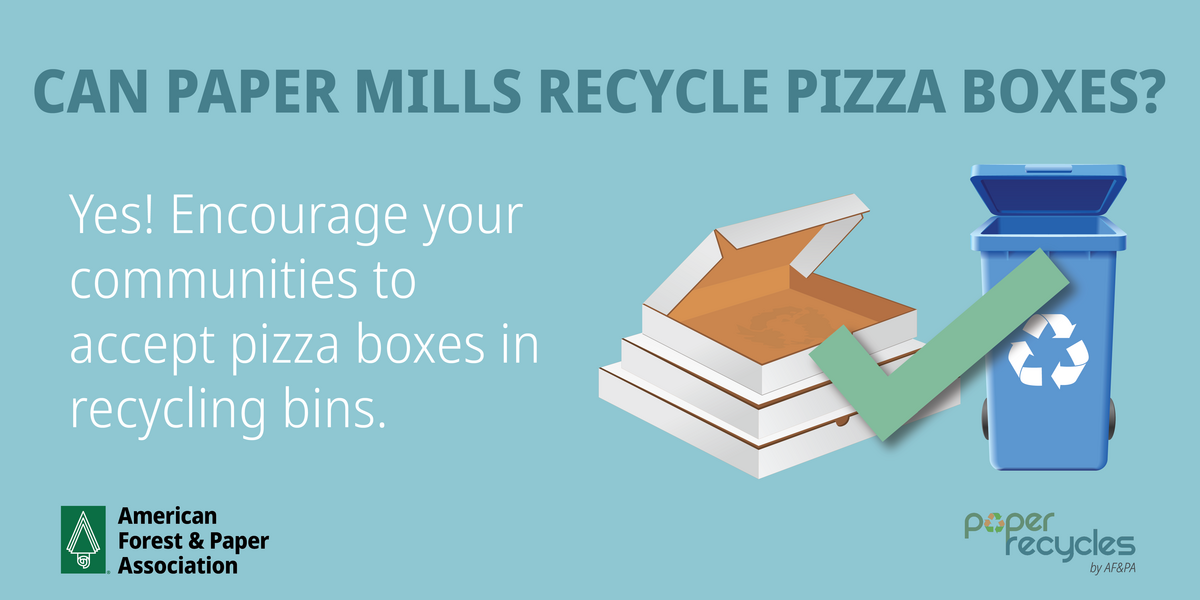
We encourage you to reach out to your local government and recycling hauler. You can share our guidance with them.
Recycling is a crucial part of the paper industry’s manufacturing process. Updating local recycling programs’ guidelines to accept pizza boxes helps us capture more material to recycle and turn into new products.
Dive into more recycling resources:

